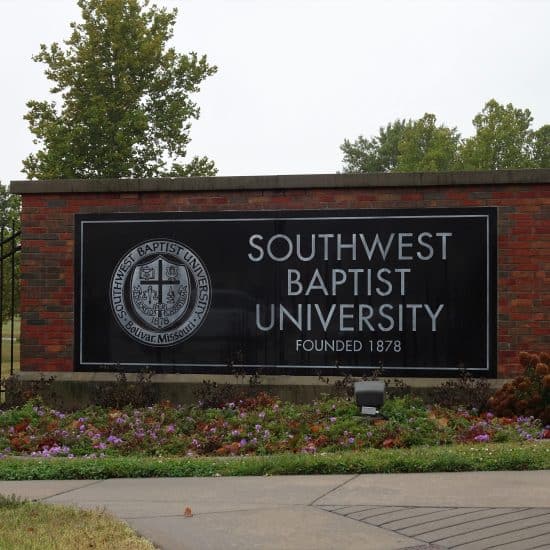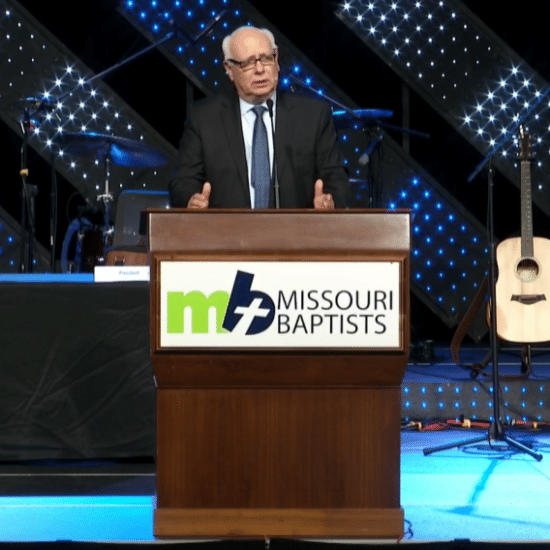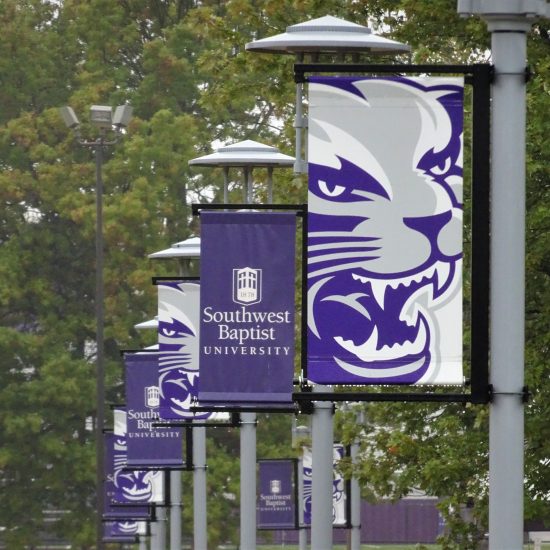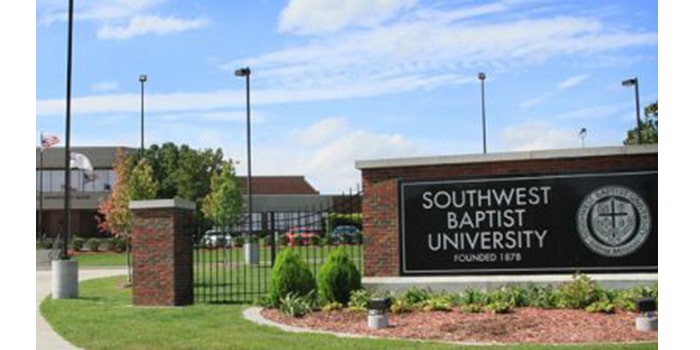
An accreditation body recently opened an inquiry into recent events at Southwest Baptist University in Bolivar, Missouri, after an alumnus filed a complaint. The Higher Learning Commission decided on Aug. 24 that the complaint warranted review of the institution that finds itself embroiled in a two-year controversy as some leaders of the Missouri Baptist Convention seek to drive out several religion professors.
The inquiry started after a complaint filed Aug. 21 by Russell Jackson, a St. Louis attorney who graduated from the school as valedictorian in 1987. His complaint includes several citations to Word&Way news reports. The complaint raised concerns that “the school’s academic integrity is about to be irrevocably sacrificed by trustees who have conflicts of interest and are about to breach their fiduciary duty to the university.” In particular, the complaint points to efforts to remove religion professors and MBC demands for new governing documents.
The HLC, headquartered in Chicago, Illinois, accredits post-secondary educational institutions in 19 mostly midwestern states. It provides SBU’s only overall accreditation, though some individual programs have additional accreditation.
Three days after the initial complaint, HLC said they would seek more information from SBU.
“Upon initial review of your complaint, HLC determined that the matter regarding Southwest Baptist University raises potential concerns regarding the institution’s compliance with the Criteria for Accreditation or other HLC requirements,” the HLC’s Aug. 24 letter read. “Due to these potential concerns, HLC will conduct a further review of the institution based on your complaint.”
The letter explained HLC would forward the complaint to SBU “for formal review and response,” providing SBU with “30 days to respond to the concerns in writing and provide appropriate supporting evidence.”
SBU did not respond to Word&Way’s request for comment about the complaint, nor did SBU note if it responded to the HLC.
Proposed Governance Changes
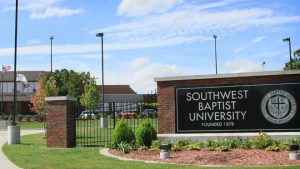
(Southwest Baptist University)
Since the filing of the HLC complaint, SBU trustees approved proposed new governing documents that include changes MBC leaders demanded. Such changes included adopting the Baptist Faith & Message 2000 and granting the MBC the legal status as sole corporate member. The previous articles of agreement adopted in 1993 name the MBC just nine times to acknowledge the MBC’s role in electing trustees, approving property sales or leases, and approving changes in governance documents. The document also notes SBU would “be in harmony with established and acknowledged principles and polices” of churches affiliated with the MBC and Southern Baptist Convention. The current bylaws include no references to the MBC.
The new proposed governing documents name the MBC more than 40 times in the articles of agreement and more than 30 times in the trustee bylaws to not only cement the MBC’s control over SBU but to also redefine the priority of SBU. While the current articles define SBU as “a Missouri Baptist institution” in harmony with MBC churches, the new version would define SBU as “a Missouri Baptist Convention institution” that “functions as an entity of the Missouri Baptist Convention” and remains “closely affiliated with the MBC.”
The new governance documents also name the MBC as the sole corporate member of SBU, in both the articles and the bylaws. This not only is a change from the current articles but even a shift from the MBC’s own past legal claims about its relationship with SBU.
Along with the corporate member language, the new articles also insist “the university and its trustees have a fiduciary relationship to the Missouri Baptist Convention to honor the rights of the MBC … as the Corporate Member, in perpetuity.” The bylaws repeat the declaration that SBU trustees have a fiduciary duty not only to SBU but also to the MBC, though it doesn’t state how trustees are to act if those positions clash. The articles prevent SBU from establishing policies addressing “conflicts of interest and undue influence” if the policies “affect or limit MBC’s rights as corporate member” without MBC approval.
The new bylaws commit SBU and its trustees to supporting the MBC’s Cooperative Program “as the best vehicle for us to channel resources.” However, the MBC provides less than 2% of SBU’s revenue. Thus, a fiduciary responsibility to SBU would appear to require focusing on non-CP vehicles to obtain needed resources for the school.
While the current documents empower SBU’s trustees to remove a trustee, the new version would grant the MBC right to veto such an effort. This became an issue last year when SBU trustees removed one of its own members for violating the Board’s conflict of interest policy. The MBC criticized that move as illegitimate. The MBC also recently changed its rules for selecting trustees to undo the historic practice of affirming SBU’s nominees.
The new documents also require, as first reported by Word&Way last month, that SBU religion professors “annually affirm” the BF&M 2000, the 1978 Chicago Statement on Biblical Inerrancy, the 1988 Danvers Statement on Biblical Manhood and Womanhood, and the 2017 Nashville Statement on sexuality. The documents also place this requirement on SBU’s president and provost. This requirement is also put on philosophy faculty, even though the documents were passed after SBU decided to eliminate its philosophy program and faculty and had previously moved the program and faculty out of the religion area and into the arts and humanities division.
Additionally, all faculty and employees “must annually indicate their on-going commitment to perform their duties and teach consistent with and not contrary to the Baptist Faith and Message 2000.” And trustees are tasked with ensuring that all faculty “will not promote positions contrary” to the BF&M 2000 and “will operate, manage, teach, and live in a manner compatible with and not contrary to the BFM 2000, supplemental statements of faith, and University Principles and Expectations.”
Some of the changes, which are to be voted on at the MBC annual meeting next week, could run afoul of HLC accreditation standards, particularly what HLC calls “criterion 2” (out of five overall areas) that focuses on “integrity” and “ethical and responsible conduct.”
Subpoint ‘c’ of that criterion considers board autonomy.
“The governing board of the institution is autonomous to make decisions in the best interest of the institution in compliance with board policies and to ensure the institution’s integrity,” the HLC standard explains. “The governing board preserves its independence from undue influence on the part of donors, elected officials, ownership interests, or other external parties.”
“The governing board delegates day-to-day management of the institution to the institution’s administration and expects the institution’s faculty to oversee academic matters,” the HLC adds.
Additionally, subpoint ‘d’ of that criterion reads, “The institution is committed to academic freedom and freedom of expression in the pursuit of truth in teaching and learning.”
One of the professors targeted over the past two years had been notified his position is being eliminated despite his tenured status. Other religion professors are also being targeted by some trustees for firing.


